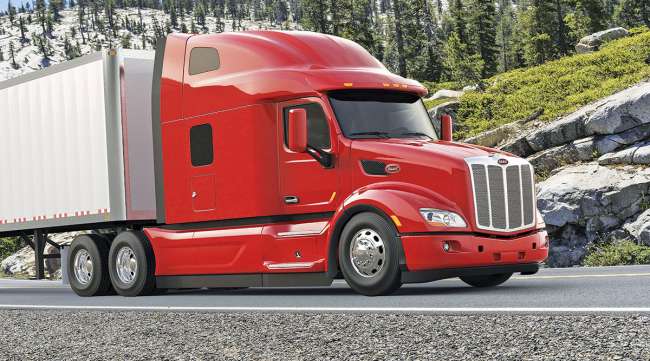Staff Reporter
Class 8 Truck Sales Continue Downward Trend in February

[Stay on top of transportation news: Get TTNews in your inbox.]
U.S. Class 8 retail sales in February continued a trend of year-over-year declines, according to data from Wards Intelligence.
Sales decreased 12.5% to 17,619 units from 20,136 a year earlier, the seventh consecutive month of year-over-year declines. The February result also was slightly below the January result of 18,594 units sold. Year-to-date sales are down 9.6% to 36,211 compared with 40,068.
“On one hand, we were expecting to see things maintained pretty well,” ACT Research Vice President Steve Tam said. “If you look at history, I think January is probably a low watermark. And in February, we usually start to get a little bit of traction or gain a little bit of momentum and kind of improve things. So a decline was not really what we were expecting. Having said that, again, you’ve got to build the units to be able to deliver them, and we had about a 3,000-unit miss in production.”
Tam said the lower-than-expected production could point to a stronger March, especially in light of January production that was largely impacted by weather.

Tam
“The first couple of months of the year are not very indicative of where things typically end up,” Tam noted. “So we do expect to see some meaningful improvement in the March numbers, assuming that they’ve got the stocks to support that level of sales.”
Freightliner, a brand of Daimler Truck North America, claimed the largest market share with 6,027 trucks sold, accounting for 34.2% of all sales for the month. But it was still an 18.2% decrease from 7,368 the prior year. Western Star, also a DTNA brand, experienced the largest year-over-year increase in truck sales at 52.4% to 814 units from 534 a year ago.
Mack Trucks’ sales declined 17.9% to 1,104 from 1,344, and Volvo Trucks North America’s sales slipped 9.5% to 2,142 from 2,366. Mack and VTNA are brands of Volvo Group.
Mack Trucks North America President Jonathan Randall said, “Overall, the economy remains strong as consumer spending, construction and a tight labor market continue to support growth. Demand for heavy-duty trucks is expected to soften from last year’s levels but remain above trend. Freight rates have cooled as the market balances demand and carrier capacity, while vocational demand remains strong.”

Koeck
Magnus Koeck, vice president of strategy, marketing and brand management at Volvo Trucks North America, said, “The industry retails in February came in a little lower than expected, and it’s a sign that the market is softening, which we have anticipated for a while now. We did recover from a weak January, and in February we were at 12.2% share in the U.S. and 15.5% share in Canada. We’re committed to end the quarter in a strong way.
“The interest for our products is still strong, and we have also started the year very well when it comes to retailing our VNR Electric. We still expect the market to be relatively strong in 2024, but we do see a shift in the customer and product mix because of the weaker longhaul market, but also that is something we have expected.”
Data showed that of the other major truck manufacturers, one saw an increase in sales year-over-year, and four saw a decrease. Peterbilt Motors Co. sales rose 2.6% to 2,916 from 2,843. Navistar’s International brand experienced a 35.5% decrease in sales to 1,825 from 2,828. Peterbilt’s Paccar stablemate, Kenworth Truck Co., saw sales decrease 1.8% to 2,791 from 2,843.

Visser
Chris Visser, director of specialty vehicles at J.D. Power, said that the February result of 17,619 deliveries “is comparable to the long-term average and represents solid two-shift output for the manufacturers.”
Visser continued, “January and February are historically the two weakest months of the year for deliveries, so 2024 is off to a strong start. New equipment shortages are mostly behind us, and fleets and other end users are largely back to a normal replacement cycle. As long as contract rates remain relatively strong, we can expect something like a status quo in 2024.”
Want more news? Listen to today's daily briefing below or go here for more info:




